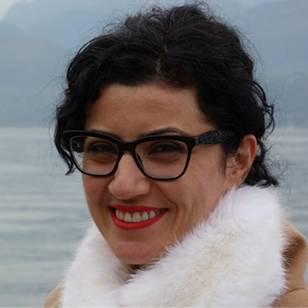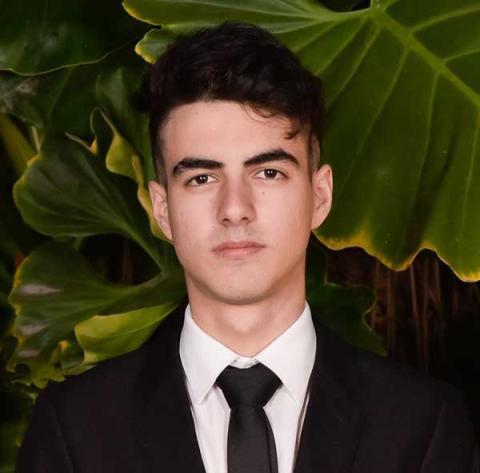Maneuvering through uncertainty with solid self-leadership skills: A spotlight interview with Dean Chen
Dean Chen is a dedicated international civil servant working in international education and governance, currently serving at the United Nations Educational, Scientific and Cultural Organization (UNESCO) regional office in Dakar, Senegal. He began his career with the United Nations through an internship at the UN headquarters in Geneva, following his master's degree from the College of Europe in Belgium. This initial role paved the way for a position with the UNESCO category 2 Center in China, where he focused on higher education and digitalization.
In 2022, seeking new challenges after working for two and a half years in China, Dean applied and successfully joined the JPO Programme, recognizing it as an ideal opportunity to gain valuable field experience while advancing his passion for education in Africa.
In this spotlight interview, we explore his experience in UNSSC’s JPO Career Booster Programme.
Aida: Which aspect of the UNSSC JPO Career Booster Programme did you find most helpful in leveraging your leadership skills?
Dean: I think the one thing that probably is a key take away from the JPO Career Booster is a new understanding of what leadership means. When we normally think about leadership, it's about leading others, essentially managing a team, but during the JPO career booster, I learned from the instructors and speakers, as well as my peers, that it's also about self-leadership.
That experience motivated me to recalibrate my understanding of what leadership truly means and apply it in my work. This is where self-leadership comes into play. It involves self-motivation and finding the right opportunities. For instance, I started taking the initiative to propose ideas to my supervisors. After participating in the JPO Career Booster, I became more intentional about sharing my ideas and actively seeking out opportunities to carve out my niche and get more from my JPO assignment. I was fortunate to have a supportive supervisor who provided me with the space to pursue my ideas.
Aida : In light of the current challenges facing multilateralism and the UN system, how has the booster programme prepared you to be a part of a meaningful change in the system?
Dean: I can only speak to my own everyday context, which is in West Africa. What I see here is uncertainty concerning funding, geopolitical tensions, and the increase of said tensions in the region.
When I was part of the task team developing the development of a regional strategy for UNESCO in West Africa, I created data visualizations based on research I conducted on the socio-economic and cultural context of the West African region. My inspiration for these visualizations was partly drawn from the Career Booster programme, where I was introduced to the concept of UN 2.0 and the importance of data as a key dimension. Participating in the Career Booster allowed me to connect with a global community of young professionals and provided access to mentors from the United Nations System Staff College (UNSSC). This experience helps me stay at the forefront of UN reform and understand how it is adapting to the changing multilateral context.
Aida: How has it helped you navigate uncertainty and help career visioning or your daily work?
Dean: It's important to have a clear career vision and not be swayed by the constant changes that are happening around us in the current global climate. There's always a solution; it is best to focus on the growth mindset. All of us in the UN system are affected, but there can always be a solution around the corner if we have the will and the ability to adapt.
So, growth mindset, that was the key approach that I took from the Career Booster.
Aida: We try to tailor the JPO Career Booster to maximize diversity and networking opportunities. With communication and networking being important skills in the UN system, how the programme help you in leveraging this skillset?
Dean: Each of our sponsoring countries offer online and in-person induction programmes for JPOs; however, these can be somewhat limited in terms of diversity. It was incredibly valuable to have a cohort of JPOs from various countries in the Career Booster, each with their unique experiences, backgrounds, and duty stations. This diverse group provided a platform for participants to share and listen to one another about their networking strategies and career development. I found this aspect particularly inspiring after I completed the JPO Career Booster programme. I have maintained contact with several JPOs from my cohort, and we continue to support one another. Recently, a fellow JPO from a different country reached out to me regarding a short-term assignment in Dakar. The JPO Career Booster program has been instrumental in fostering diversity and networking opportunities, which has created an ongoing support network for me as I navigate my career within the UN.
Aida: Would you recommend this training programme to other junior professional officers and why?
Dean: Having a network of JPOs from different nationalities, duty stations and organizations, is very valuable. In 10 years or 20 years, we might find ourselves in positions of a higher responsibility working within or, not even necessarily in the UN, but also in other industries. These connections are something that you can leverage and mutually benefit from.
Aida: What message of inspiration do you have for all JPO Career Booster participants or alumni?
Dean: We’ve mentioned change and uncertainty, so I will say the key message to JPOs Career Booster participants, future and past, is that we can navigate uncertainty with our self-certainty, it's linked to your self-leadership. If we keep cultivating ourselves, keep developing our capacities, our networks, and our expertise, there will be a way out of all this uncertainty, and we will be able to carve out our own path.
So, navigate uncertainty with certainty of yourself.

